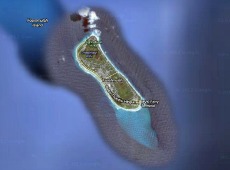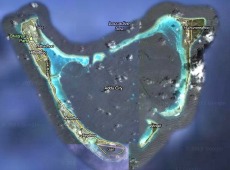The US has reiterated that it has no intention to establish a base or military presence in the Maldives, after a leaked Status of Forces Agreement (SOFA) between the two countries’ militaries sparked local speculation in April.
Former US Ambassador to Sri Lanka and the Maldives, now Assistant Secretary of State for South and Central Asia Robert Blake, told the Press Trust of India that the agreement referred to joint military exercises and not a future base-building endeavor.
“We do not have any plans to have a military presence in Maldives,” Blake said, echoing an earlier statement from the US Embassy in Colombo.
“As I said, we have exercise programs very frequently and we anticipate that those would continue. But we do not anticipate any permanent military presence. Absolutely no bases of any kind,” Blake said.
“I want to reassure everybody that this SOFA does not imply some new uptick in military co-operation or certainly does not apply any new military presence. It would just be to support our ongoing activities,” he said.
A recently leaked draft of the SOFA, obtained by Maldivian current affairs blog DhivehiSitee, extensively outlines provisions and immunities for US personnel and contractors in the Maldives, and mentions both ‘Agreed Facilities and Areas’ – detailed in a separate and unreleased ‘annex A’ – and all rights “that are necessary for their use, operation, defense or control, including the right to undertake new construction works and make alterations and improvements.”
However Blake and the US Embassy in Colombo maintained that the SOFA was a standard agreement for joint military exercises of which the US had signed more than 100 with countries around the world.
“I haven’t seen the draft agreement. So I can’t comment. But we are in the process of negotiating one now. These are standard text round the world, nothing very secret about them,” Blake told PTI.
We have status of forces agreements with more than 100 nations around the world. And these are basically agreements we have with partners where we have significant military activities, typically exercises,” he said.
“So for example, with Maldives we have Coconut Grove, which is an annual marine exercise. So the status of forces agreement helps to provides framework for those kinds of cooperative activities. They are desirable things to have. But it does not in any way signify an expansion of our military presence or some major new development in US-Maldivian military co-operation. It’s simply more of a framework to provide for [ongoing] co-operation,” Blake said.
He also revealed the US would be announcing a “quite substantial program” to help provide for free and fair elections in September.
US, UN diplomats visit Male
US Ambassador Michele Sison and UN Assistant Secretary-General for Political Affairs Oscar Fernandez Taranco are currently visiting the Maldives and have met with key political and civil society leaders ahead of the September 7 elections.
Speaking at an opposition Maldivian Democratic Party (MDP) rally, former President Mohamed Nasheed declared that he had met with both, who “agreed that foregoing an investigation of the senior officers among the police and military who were involved in the events of February 7, 2012 would not be a good thing either for Maldivian democracy, rule of law or the upcoming election,” Nasheed told the crowd of MDP supporters.
He added that progress towards stability and fair elections would be forestalled by the lack of such an investigation.
“We are not asking for an investigation of all police and army officers. We are talking about a few people. About 10 or 12 people,” he said.
Nasheed expressed confidence that “criminal investigations” would take place into unlawful acts or criminal offences committed by mutinying police and military officers on February 7, 2012.
A US Embassy Spokesperson confirmed to Minivan News that Ambassador Sison was visit the Maldives and had met with Nasheed “as part of our normal bilateral relationship, to meet with government and civil society leaders as well as visit US Embassy initiatives such as our Access English language microscholarship program. She arrived yesterday and will depart today.”
During her meeting with Nasheed, “Ambassador Sison reiterated her support for the implementation of the Commission of National Inquiry (CNI) report and its recommendations, including investigations into allegations of abuse.”
Nasheed informed a previous US delegation on January 31, consisting of Deputy Assistant Secretary of State James Moore, Deputy Assistant Secretary of Defense Vikram Singh and Deputy Assistant Secretary of State Jane Zimmerman, that the government had made no move towards acting on the recommendations made in the report, which included holding police accountable for widely videoed brutality surrounding what it termed a legitimate transfer of power in February 2012.
Meanwhile yesterday (May 8, 2013) the Prosecutor General filed the first charges against two police officers for allegedly assaulting MDP MPs ‘Reeko’ Moosa Manik and Mariya Ahmed Didi on February 8, 2012 during the brutal police crackdown.
Local media identified the accused as Mohamed Waheed from the island of Thinadhoo in Gaafu Dhaalu Atoll and Ibrahim Faisal from Machangolhi Rausha of Male’.

